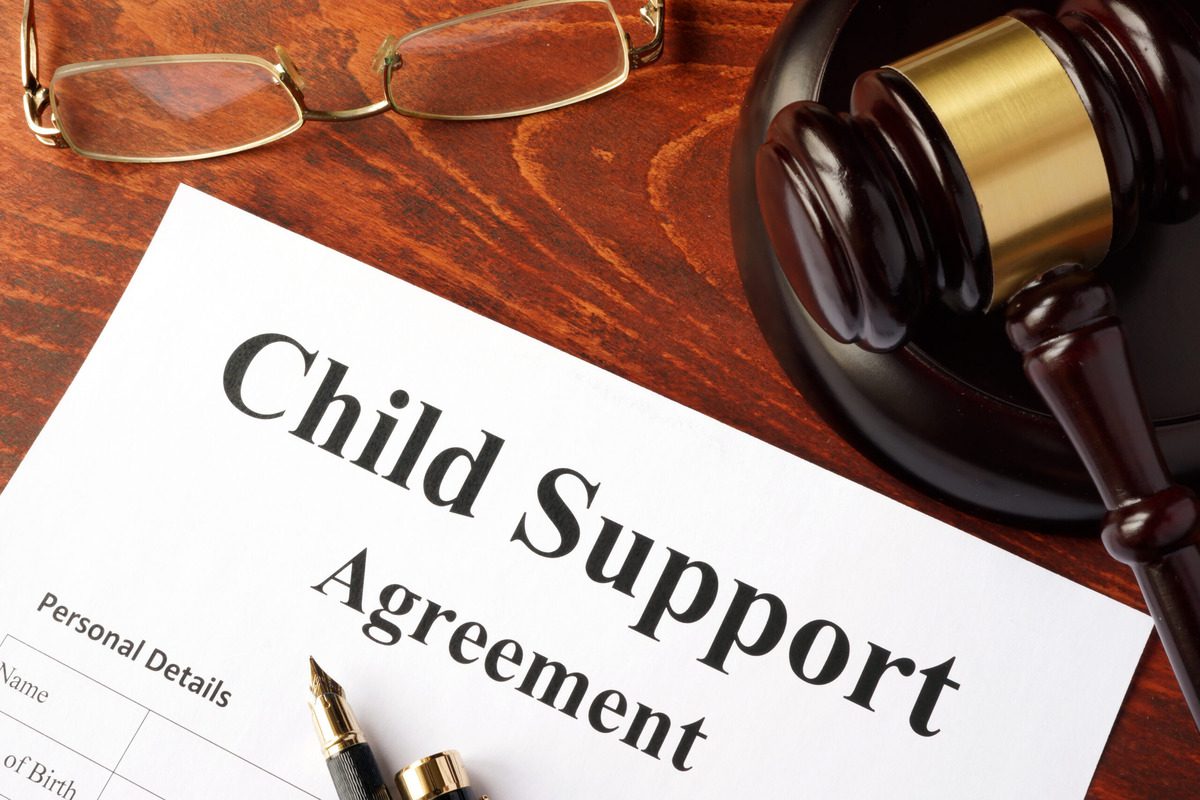What Happens If You Don’t Pay Child Support in Texas?
In Texas, child support is a court-ordered payment that a non-custodial parent must make to financially support their child. These payments cover essential expenses such as food, clothing, education, and healthcare, ensuring the child’s needs are met despite parental separation or divorce. When a parent falls behind on child support or neglects to pay it altogether, Texas law considers it a serious offense, and there are extensive consequences.
Table of Contents
- What Are the Immediate Consequences of Failing to Pay Child Support?
- What Legal Actions Can the State Take if You Continue Not Paying Child Support?
- How Does Non-Payment of Child Support Impact Employment Opportunities?
- Is It Possible to Modify Child Support Payments in Texas?
- What Are Your Options if You’re Struggling to Pay Child Support?
- Call to Action
1. What Are the Immediate Consequences of Failing to Pay Child Support?

- Accrual of Arrears: Every missed child support payment becomes arrears. Arrears accumulate as long as child support is unpaid and do not simply go away over time. Texas law imposes an interest rate of 6% per year on unpaid child support, meaning that every dollar of debt increases the total amount owed.
- Automatic Wage Garnishment: Texas allows for wage garnishment, which means the state can legally require your employer to withhold a portion of your paycheck to cover the child support payments you owe. Wage garnishment is one of Texas’s most common tools to recover unpaid child support.
- Impact on Credit Report: Non-payment of child support is reported to credit bureaus, which can lower your credit score. A lower credit score can affect your ability to secure loans, obtain a credit card, or rent housing. Many people overlook this consequence, but it can be financially restrictive.
- Asset Freezing and Bank Levies: If child support arrears build up without resolution, the Child Support Division can place a hold on your bank accounts, effectively freezing funds to satisfy child support debt. This action can cover all or part of the overdue balance.
2. What Legal Actions Can the State Take if You Continue Not Paying Child Support?

- License Suspension: In Texas, failure to pay child support can lead to the suspension of various licenses, including your driver’s license, professional licenses (such as a medical, law, or engineering license), and even hunting and fishing licenses. Losing these licenses can make maintaining employment or carrying out daily activities complex.
- Passport Denial: If your unpaid child support balance exceeds $2,500, you become ineligible to receive a passport. This can be particularly restrictive if your job requires international travel or if you are planning to travel abroad for personal reasons.
- Property Liens: Texas law allows the state to place liens on property, such as your home, car, or other assets. This means that the state can secure payment for the child support debt through these assets, and if you attempt to sell them, you will need to satisfy the child support debt before the property can legally change ownership.
- Tax Refund Interception: The state may intercept your federal and state tax refunds to cover unpaid child support. Any refund you expect can be applied directly to your child support debt before you receive the funds.
- Civil and Criminal Contempt of Court: As a last resort, the court can hold you in contempt, a severe legal action involving fines, additional fees, or even jail time. Civil contempt can result in jail until a specified payment or compliance is achieved, while criminal contempt may result in jail sentences of up to six months per violation.
3. How Does Non-Payment of Child Support Impact Employment Opportunities?
One consequence of not paying child support that often goes overlooked is the potential impact on employment. Texas laws relating to child support enforcement can indirectly affect job prospects, as some consequences may interfere with your ability to work or seek new employment. Here’s how:
- Suspended Professional Licenses Impact Careers: If your profession requires a state-issued license, a suspension may prevent you from legally working in your field. This can be especially problematic for medical professionals, lawyers, educators, or tradespeople who rely on valid certifications or state licenses to perform their work.

- Credit Score Damage Affects Job Searches: A poor credit score due to unpaid child support arrears can impact job opportunities, especially in roles where employers conduct credit checks as part of their background screening process. This is common in industries that require handling money, sensitive information, or decision-making roles.
- Employer Notification Due to Wage Garnishment: When your wages are garnished, your employer will be notified that you owe child support. While discrimination based on wage garnishment is prohibited, knowing your financial situation can impact how your employer perceives your reliability or financial responsibility.
4. Is It Possible to Modify Child Support Payments in Texas?
Financial situations can change, and sometimes, parents face legitimate difficulties preventing them from maintaining their child support payments. Fortunately, Texas law does provide mechanisms for requesting a modification of child support payments under specific circumstances. If you’re struggling to meet your obligation, consider the following options:
- Eligibility for Modification: To request a modification, there must be a substantial change in your financial or personal circumstances. This might include losing your job, suffering a medical disability that prevents you from working, a significant change in the child’s living arrangement, or an increase in the child’s needs.
- Filing a Petition for Modification: You’ll need to file a formal petition with the court to request a review of the existing child support order. This process typically involves providing evidence of the change in circumstances and may require a court hearing where both parents can present their case.
- No Retroactive Adjustments: It’s essential to understand that any approved modification is not retroactive. This means that the change only applies to future payments, and you will still be responsible for any arrears accumulated before the modification request.
- Temporary Hardship Considerations: While uncommon, a judge may grant temporary relief under certain situations. This is particularly relevant if you can demonstrate a temporary inability to pay, such as during a brief period of unemployment or a severe medical event.
5. What Are Your Options if You’re Struggling to Pay Child Support?

- Communicate with the Texas Child Support Division: If you’re behind on payments, contact the Texas Child Support Division directly. They may be able to help you explore options for managing your debt, particularly if you’re willing to make a plan for paying arrears over time.
- Seek Legal Guidance from a Family Law Attorney: A family law attorney can help you understand your legal rights and obligations, offer strategies for addressing arrears, and assist in submitting petitions for modification. An attorney can also provide valuable representation if your case escalates to a contempt hearing.
- Negotiate a Payment Plan with the Custodial Parent: If the custodial parent is open to discussing payment arrangements, a mutually agreed-upon payment plan may be a way to catch up on arrears gradually. This approach can prevent more severe enforcement actions while meeting your obligations.
- Consider Mediation Services: Mediation is an option if both parents agree. In mediation, a neutral third party can help negotiate a plan that addresses both parties’ concerns, reducing potential conflict and finding a practical approach to handling arrears.
- Utilize State Programs for Financial Support: Texas offers various support programs for parents facing financial hardship. For example, some parents may qualify for job training, employment placement services, or assistance programs that could improve their economic stability, allowing them to meet child support obligations more effectively.
Call to Action


